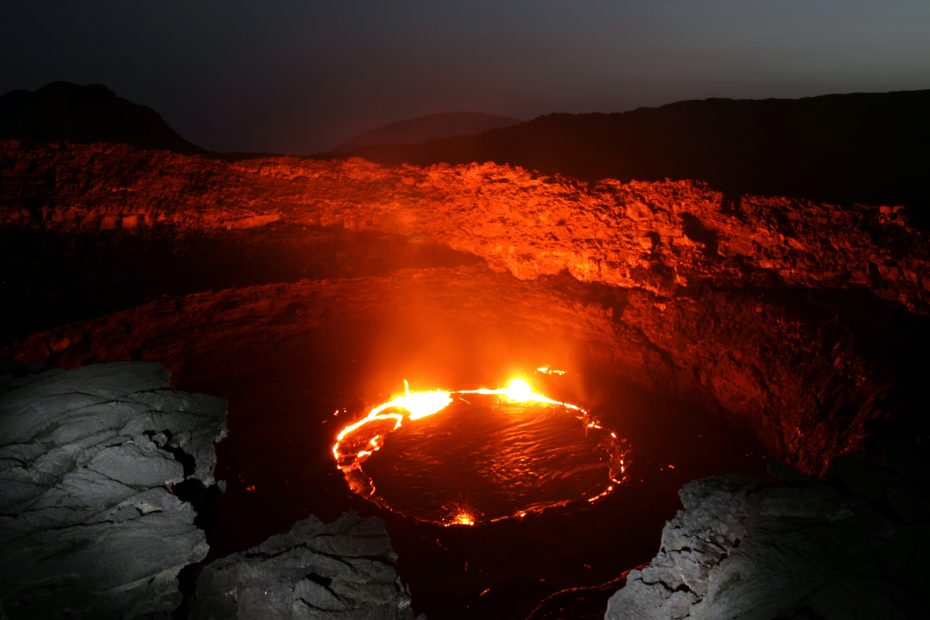Table of Contents
Introduction
Ethiopia is an ancient land located in the Horn of Africa, with a recorded history spanning over 3000 years. Known as Abyssinia in the past, Ethiopia has an incredibly diverse cultural heritage shaped by both indigenous and foreign influences over the centuries. “Culture” refers to the beliefs, customs, arts, etc. that characterize a society and its way of life. Ethiopia is often described as a cultural kaleidoscope due to the sheer variety of traditions practiced by over 80 different ethnic groups. This article takes the reader on an exciting journey through the key aspects of Ethiopian culture.
Ethiopia’s Diverse Ethnic Groups
With over 80 officially recognized ethnic groups, Ethiopia is one of the most ethnically diverse countries in Africa. Some of the major groups include the Amhara and Tigray (who together makeup over 30% of the population), Oromo (34%), Somali (6%), and Sidama (4%). The different groups have their own languages, customs, traditional clothing, music and more. For example, the beautiful colors and designs of Habesha kemis worn by Amhara and Tigray women stand in stark contrast to the vibrant Oromo garb.
Language is another marker of diversity, with over 80 languages spoken in the country. Amharic is the most widely spoken tongue and the official working language. However, languages like Oromo, Somali, and Tigrinya are also very popular. Greetings also vary between ethnic groups – the formal Habesha greeting is “Ihagh Sham” while Oromos say “Akkam Jirtu?”.
Religions in Ethiopia
Ethiopia has an ancient Christian heritage tracing back to the 4th century AD. Today, Christianity is the most widely professed faith, with the Ethiopian Orthodox Tewahedo Church having over 40 million followers. Orthodox practices like fasts, feasts, and pilgrimages are integral to the culture. Ethiopian crosses have a unique and iconic design.
Islam also has a substantial following, introduced through migration and trade links around the 7th century. Over 30% of Ethiopians are Muslim today, predominantly in the eastern and southeastern parts. Islam influenced cultural aspects like cuisine, architecture, and attire in these regions.
Many Ethiopians also follow traditional animist beliefs involving practices like ancestor veneration. Elements of Judaism are seen in communities like the Beta Israel or “Falasha” Jews. The constitution provides for freedom of religion, though tensions sometimes flare up.
Ethiopian Cuisine
The foundation of traditional Ethiopian cuisine is injera – the uniquely spongy flatbread made from the indigenous teff grain. It is used as an edible utensil to scoop up “wat” or stews, with trademark spicy and aromatic flavors. Meat and vegetable combinations like doro wat and shiro wat are popular. Regional variations exist – like the use of sorghum instead of teff in the north.
The Ethiopian coffee ceremony is a cherished tradition and social event featuring rich, aromatic coffee brewed the traditional way and served with snacks. Other highlights include nitter kibbeh (spiced clarified butter), flavorful spices like berbere, and honey wine or tej.
Music and Dance
Music is integral to Ethiopian culture. Traditional instruments include the kebero drum, stringed krar, and washint flute, often played during community events and celebrations. Ethiopian musical styles are influenced by the country’s ethnic diversity – the Amharas and Tigrayans have traditionally been known for their minstrel traditions called azmari.
Dance is another lively form of expression showcasing the cultural richness. The shoulder-shaking, hip-swaying moves of Ethiopian dances like eskista have caught international attention and gone viral online. Gurage customs like chibo involve traveling bands of troupes dancing and singing for several days on end.
Literature and Art
Ethiopia has one of the oldest literary traditions in Africa, with roots in the ancient Ge’ez script. Contemporary Amharic literature flourished in the 20th century, including poets like Tsegaye Gebre-Medhin. The Ethiopian art scene is also vibrant – with influences ranging from Byzantine-style Orthodox paintings to modern styles. Notable artists include Gebre Kristos Desta and Skunder Boghossian.
Sports and Games
The traditional sport of genna – similar to field hockey – has been played for centuries during Ethiopian Christmas. Other homegrown sports include a wrestling style called kokab. However, football is undoubtedly the nation’s darling, with fervent support for the national team and star players. Athletic triumphs like Abebe Bikila 1960 Olympic marathon win have cemented Ethiopia’s stature as a sports powerhouse.
Ethiopian Holidays and Festivals
Ethiopian holidays provide colorful glimpses into the culture. Meskel is a major Christian holiday commemorating the discovery of the True Cross. It features bonfire ceremonies and masked dances like the guagua. Timket celebrates Christ’s baptism with parades and feasting. National holidays like Independence Day (May 28) are celebrated across communities.
Conclusion
As this article has shown, Ethiopia’s cultural palette is intensely vibrant, complex, and diverse. From ethnic multiplicity to delectable cuisine, artistic excellence and spiritual traditions, the country offers an unparalleled cultural immersion. These traditions serve as a creative lifeforce and unifying thread, reminding Ethiopians of their common heritage. Though facing modern pressures, Ethiopia’s centuries-old living culture continues to be safeguarded as a national treasure.
FAQs
Q: What is injera made of?
A: Injera is traditionally made from the indigenous African grain called teff. The flour is fermented to make a uniquely tangy and spongy flatbread.
Q: How many ethnic groups are found in Ethiopia?
A: Ethiopia has over 80 distinct ethnic groups including Oromo, Amhara, Tigrayan, Somali, Sidama and many more.
Q: What religion do most Ethiopians follow?
A: The majority of Ethiopians (around 40-45%) are Ethiopian Orthodox Christians. About 30% are Sunni Muslim, while the rest follow other faiths.
Q: What is Ethiopian coffee ceremony?
A: The elaborate Ethiopian coffee ceremony is a social occasion featuring the roasting, brewing and serving of coffee with snacks like popcorn.
Q: What is a common traditional sport in Ethiopia?
A: Genna, similar to hockey, has been played in Ethiopia for centuries especially during the Genna Ethiopian Christmas celebrations.
